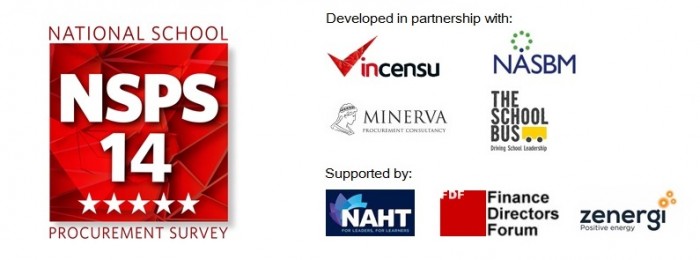National School Procurement Survey 2014 - Results
Schools avoid buying together because of lack of time and training
A lack of time and expertise is preventing schools from buying goods and services collaboratively - and easing pressure on tight budgets.
While the vast majority of respondents (87 per cent) to the second annual National School Procurement Survey (NSPS14) believe their school could save money by purchasing collaboratively with other schools, few believe they have the in-house expertise.
Over 60 per cent of respondents said there was no-one in their schools with the responsibility to identify how their school could purchase supplies collaboratively with other schools, while just 24 per cent said they had partnership agreements with other schools for joint purchasing.
Over 64 per cent said that time was the main barrier to them working with other schools to purchase collaboratively. Collaborative purchasing not being seen as a priority and lack of expertise were also listed as key challenges.
A formal framework, such as a partnership or trading company, training and time were suggested as main factors that would encourage schools to start working collaboratively with others. Understanding legal issues in joint procurement and contracts and managing contract performance were key areas that could be addressed by training. Respondents also suggested that suppliers could do more to make it easier for schools to purchase collaboratively from them.
NSPS14 was carried out online by Incensu, the national register of education suppliers, in July 2014. The survey of 106 school business managers, headteachers, bursars and governors in mainly state schools across England was supported by a range of partners, including the National Association of School Business Managers (NASBM).
Peter Melville, a school business director at an Essex academy and Incensu co-founder, said: “The findings show that schools are enthusiastic about collaboration because of the large savings it can deliver but time, expertise and structures are lagging far behind.
“The findings show that more training is key to help schools collaborate on the purchasing of goods and services. This should become a major element in the formal training of school business managers. The government could also fund training programmes to support schools realise their ambitions for more collaborative purchasing.”
Other findings revealed by the survey include:
• Concern was expressed about the implications of the government’s new free school meals for under 7s policy on pupil funding at primary and secondary level. Almost two thirds of those polled said their main worry about the policy was its impact on the ‘Ever 6’ measure used by schools to determine which pupils attract pupil premium funding.
• Budgets remain a big challenge for schools in 2014, with 54 per cent saying this was a key concern. This is a slight drop from the 2013 survey, when this was (66 per cent). Along with accessing grant funding (42 per cent) and balancing short term needs with long term strategic requirements (49 per cent).
• Schools want to use local suppliers more often but find it difficult to find reputable suppliers and contractors in their local area. With 99 per cent willing to recommend, rate and review companies with experience of working with their school to help other schools in their procurement decisions it is set to become easier for schools to find more local suppliers on the national register of education suppliers at incensu.co.uk.
• Cost isn’t the number one priority for school purchasers – value for money, reliability, quality and customer service are all considered more important factors in choosing suppliers.
• Schools want to search for prospective suppliers rather than be sold to – just 5 per cent of respondents welcomed direct sales calls while 78 per cent preferred to search for companies themselves.
The survey was also backed by Incensu partners TheSchoolBus, Minerva Procurement Consulting and Zenergi. The National Association of Headteachers (NAHT) and the FD Forum also supported the survey.

